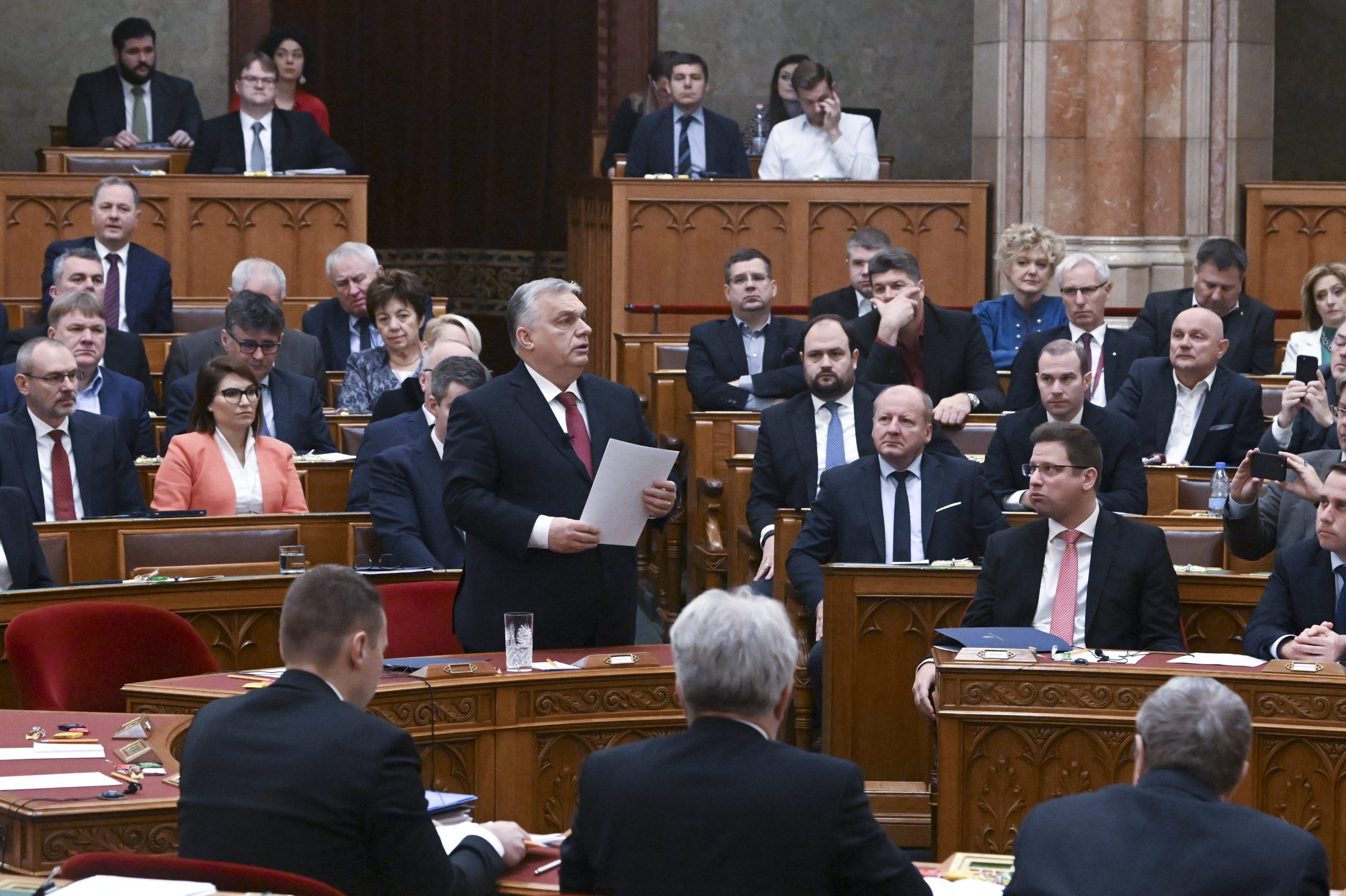
The law amendments are needed to open the EU accession negotiations.Continue reading

Today, the National Assembly is debating the proposal of the governing party on the opening of negotiations on Ukraine’s accession to the European Union. The debate started at 9 a.m., at which time Prime Minister Viktor Orbán also addressed parliament.
At the beginning of his speech, the prime minister stressed the importance of “a meaningful debate on Ukraine’s accession to the EU in parliament. This affects the fate not only of Hungary, but of Europe as a whole.” He recalled that after Ukraine applied to join the EU in February last year, it was granted candidate status four months later. On average, however, it takes more than three years between the submission of an application and the granting of candidate status, he added. Albania, for example, is a particularly cautionary example, having applied for membership in 2009, he said. The country “had to wait five years to obtain candidate status and another six…to start accession negotiations.”
Viktor Orbán called the case of Ukraine a case of undisguised bias on the part of the EU. “Undisguised bias destroys the authority of the EU institutions. It is at such times that national parliaments are needed to debate the issue on its merits,” he said. “In the debate that is going on here, we need to find an answer to the question of whether the opening of negotiations and Ukraine’s rapid accession to the European Union is to the benefit of Hungary and Europe.”
The European Commission has set seven conditions for Ukraine to be granted candidate status: reform of the selection of constitutional judges, a review of the General Council of the Judiciary, enhanced action against money laundering, the guaranteeing of media freedom, tackling corruption and oligarchs, and ensuring the rights of national minorities. However, whereas previously all countries had to fulfill the conditions before they could be granted candidate status, Ukraine was granted candidate status before it fulfilled the conditions.
If we look at Ukraine’s case in this respect, the Commission itself claims that only four of them have been met,”
he pointed out.
However, if we look closely at these four conditions, it is clear that in fact Ukraine has not fulfilled them either, and “rather there have been steps backwards in these areas,” he added. According to international analyses, the law on the reform of the selection of constitutional judges has not been implemented, and the law on the procedure has not been adopted. Nor are the criteria for the selection of the High Council of Justice and judges clear, stated the prime minister. In the fight against money laundering, the necessary decisions have not been made and no one has been prosecuted.
Regarding freedom of the media and press, “the Ukrainian government has practically eliminated freedom of expression and freedom of the press on the grounds of national security,” he noted. This is acceptable in a country at war, Prime Minister Orbán said,
but it does not mean that we Europeans should ridicule ourselves by saying that Ukraine has freedom of the press.”
Corruption, oligarchs, and national minorities are not being tackled, even according to the Commission. In regard to the new law on minorities recently adopted by the Ukrainian Parliament, he said that it was not yet clear what exactly the law contains, which was supposed to be favorable to minorities, and that an analysis of the new law was still ongoing. He recalled that in 2015, the rights of minorities living in Ukraine were taken away from them. He stressed that
Hungary’s only request on the minority issue is to restore the law that guaranteed the rights of the minorities living in Ukraine until 2015.
Explaining why Ukraine’s membership would have unforeseeable consequences, he said that the country is currently at war and that the end of it is still not in sight. “There has never been an example of the EU starting negotiations with a country while it is at war,” he noted. “For instance, we do not know the population of Ukraine, which is the basis for calculating EU financial funding. However, in agriculture and transport, we have already had experience of the Commission opening part of its market to Ukraine,” he added. In both these areas, the Hungarian government sees that nation-state intervention was needed to “prevent irreparable damage in the first place.”
“Ukraine can and must be helped, but no one should want us to destroy Hungary in the process,” Orbán concluded. He added: “Hungary is under pressure, but we must not shy away from common sense. There is a time for everything, and the time for Ukraine’s EU membership has not yet come.”
Via Hír TV, Featured image: MTI/Koszticsák Szilárd